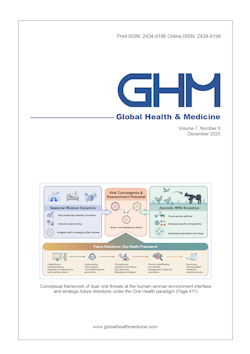Global Health & Medicine 2025;7(3):189-198.
Creation and use of an index of the emergency resilience of urban public health management in China
Zhang SX, Feng YY, Zhu AY, Huang XY, Huang TX
This article proposes a framework for emergency resilience based on a review of the literature and theoretical analysis. On this basis, the Delphi method and the Analytic Hierarchy Process have been used to create an index of the emergency resilience of urban public health management. This index includes 6 primary indicators, 22 secondary indicators, and 93 tertiary indicators. An evaluation using the created index indicated that Shanghai's public health emergency management scored 82 out of 100, which is generally a good score. However, there are still problems such as the lack of specificity and implementability in emergency plans, the lack of diversification of reserves of emergency supplies, the low degree of sharing emergency information and cooperation, failure to capitalize on the advantages of traditional Chinese medicine, and the shortage of public health personnel in local communities. Overall, the index of the emergency resilience of urban public health management as was created from the perspective of preventing and controlling major infectious diseases is scientific and reliable, and it can effectively evaluate the current state of emergency management in urban public health.
DOI: 10.35772/ghm.2025.01046







